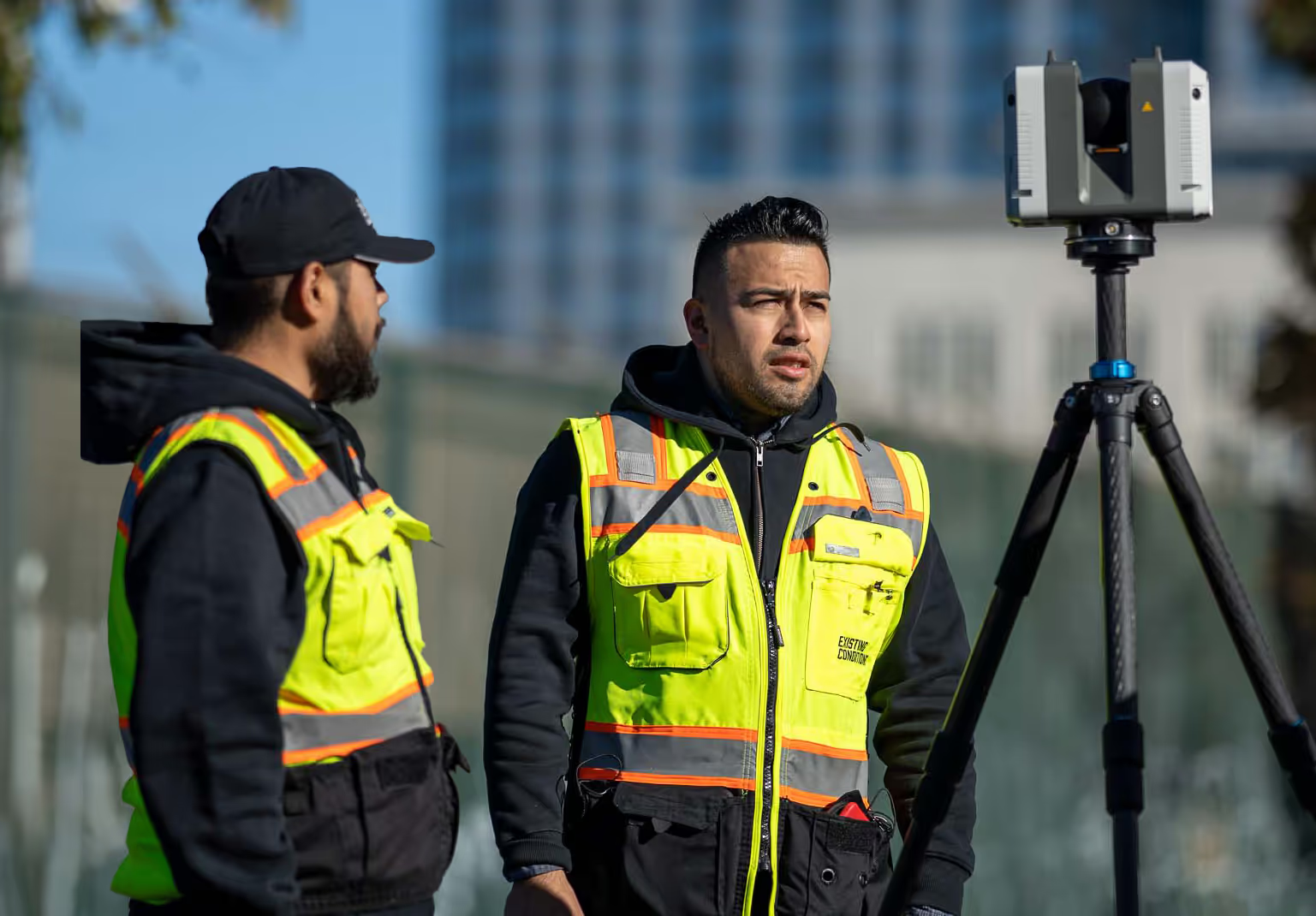Knowledge Base
Existing Conditions vs Matterport
Accurate As-Built's vs. 3D Virtual Tours
Whereas Existing Conditions uses 3D laser scanning, drone surveying, BIM, and CAD to produce accurate as-built models and drawings, Matterport is primarily a 3D camera and virtual tour software platform. While our 3D laser scanning and BIM allow for a higher-accuracy digital model, we are happy to advise you on when Matterport may better suit your needs. If all you need is a virtual tour and interactive imagery of your space, as opposed to a set of accurately dimensioned drawings or a 3D Revit model, a Matterport project may be the appropriate route.

When you hire Existing Conditions, our work typically consists of delivering 3D laser scan data and building information models. 3D laser scanning is a non-contact, non-destructive technology that digitally captures spatial data on the physical environment through the use of LiDAR. Three-dimensional laser scanners create “point clouds” of data about buildings and their context. There is no monthly fee required to retain access to this data produced by Existing Conditions, and you do not have to worry about the data being published or monetized without your permission.

In comparison, Matterport is a 3D media platform that lets you create, navigate, modify & share interactive 3D models. Matterport's roots are in high-end 3D cameras that are designed to capture multiple images of a space and stitch them together using photogrammetry to make a composite digital space. Their cameras and virtual tour software allow people to digitize their buildings, create 3D tours, print photos, and draw schematic floor plans. Matterport requires a monthly fee to retain access to your data, and their Terms allow them the right to use your data as described in their Terms of Use, Platform Subscription Agreement, and other Legal Agreements.
When considering privacy and ownership, the choice between LiDAR and Matterport is important. With a LiDAR-based scanner, the provider typically delivers the data directly to you, and you retain full ownership. In contrast, Matterport introduces a different dynamic. Maintenance of data access requires monthly payments, and, in some instances, Matterport retains ownership rights over the resulting data and drawings. This difference emphasizes the importance of privacy and control over your digital assets, making the LiDAR-based approach a more secure choice for the long term.

3D laser scanning from Existing Conditions delivers architectural and construction-grade data, capturing both interiors and exteriors with a high level of accuracy. It goes beyond providing high-resolution digital images and videos for virtual walkthroughs.
In contrast, Matterport is a reliable tool for property marketing, particularly for interiors. This tool is good for crafting 3D virtual tours suitable for diverse uses, ranging from real estate brokers to retailers.

Project Flexibility
LiDAR-Based Scanning System:
- Versatile across project sizes, accommodating both large-scale and smaller projects.
- Capable of handling buildings ranging from a million square feet to the smallest structures.
- 3D Revit Model of Griffin Hall at Williams College, Stanford, CA (2)
Matterport's Project Scope:
- More effective for interior projects.
- Generally limited to projects of 10,000 square feet or less.
- Difficulty using for building exteriors
Choosing the Right Tool for the Job
The choice between 3D laser scanning and Matterport is based on the project's specific requirements. For architectural and construction-grade scanning, where accuracy is important, using LiDAR-based scanners, like the Leica RTC360 for example, would typically be a better choice. On the flip side, Matterport excels in crafting visually compelling graphics, making it a great choice for applications like real estate walkthroughs.
Whether your priority is accuracy through 3D laser scanning or a focus on high-quality graphics, Existing Conditions offers a tailored approach, utilizing the tools that best suit your project’s requirements.
Related Articles

.svg)







